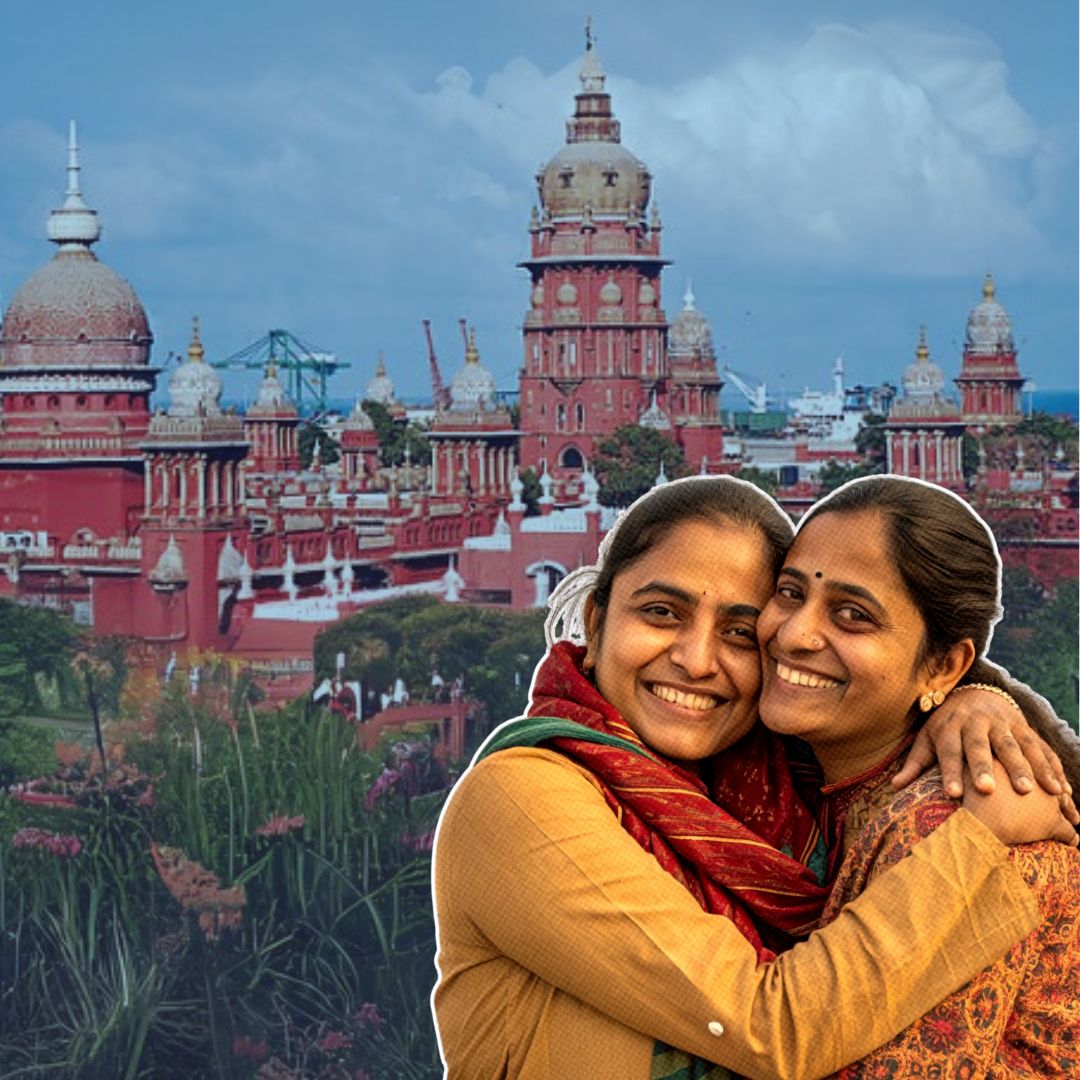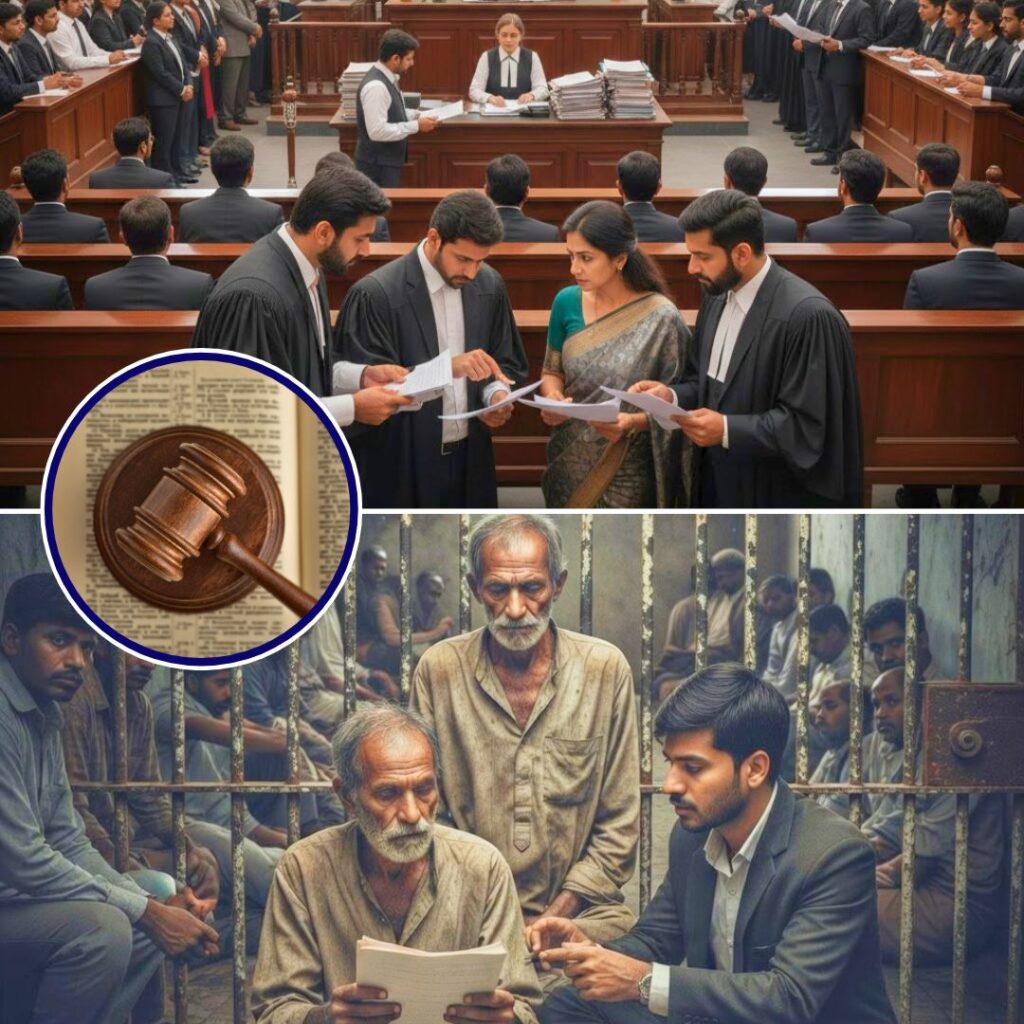In a historic judgment on May 22, 2025, the Madras High Court recognised the right of two women in a same-sex relationship to live as a family, despite the absence of legal recognition for same-sex marriage in India.
The division bench of Justices G R Swaminathan and V Lakshminarayanan ordered the release of a 25-year-old woman who had been forcibly detained and subjected to abuse by her natal family for her lesbian relationship.
The court emphasised personal liberty, dignity, and constitutional protection under Article 21, restraining the family from interfering and directing police protection for the couple. This ruling marks a significant advancement for LGBTQIA+ rights and challenges traditional notions of family in Indian society.
Expanding the Definition of Family
The case arose when the woman’s partner filed a habeas corpus petition after the detenue was taken from her shared residence by her family, who opposed her sexual orientation. During the court proceedings, the woman detailed the physical abuse and coercive “normalising” rituals she endured at the hands of her family, including attempts to forcibly “correct” her orientation.
The bench underscored that family is not solely defined by marriage, stating, “Marriage is not the sole mode to found a family.” It acknowledged the legitimacy of “chosen families” — a concept increasingly recognised in LGBTQIA+ jurisprudence globally and now affirmed by the Madras High Court.
The judges also highlighted the detainee’s courage in openly affirming her identity despite societal stigma and noted the petitioner’s initial reluctance to fully disclose their relationship due to fear of social backlash. The court’s empathetic approach signals a shift towards recognising diverse family structures beyond conventional norms.
Legal Context and Official Responses
The judgment draws heavily on landmark Supreme Court rulings such as National Legal Services Authority (NALSA) vs Union of India (2014) and Navtej Singh Johar vs Union of India (2018), which decriminalised consensual same-sex relations and recognised sexual orientation as an essential facet of personal liberty.
Additionally, the bench referenced the 2023 Supreme Court judgment in Supriyo, which clarified that while same-sex marriage is not yet legally sanctioned, same-sex couples have the right to live together and form families deserving of legal protection.
The court censured the local police for failing to protect the woman and for coercing her return to her family, issuing a “writ of continuing mandamus” to ensure ongoing police vigilance and protection. Advocate MA Mumtaj Surya, representing the petitioner, praised the ruling as a “milestone in affirming LGBTQIA+ rights,” while Additional Public Prosecutor E Raj Thilak assured compliance with the court’s directives. The judgment thus not only safeguards individual freedom but also holds authorities accountable for protecting vulnerable citizens.
The Logical Indian’s Perspective
This landmark ruling is a beacon of hope for LGBTQIA+ individuals across India, reinforcing the fundamental right to personal liberty and the recognition of chosen families. It challenges entrenched social prejudices and legal lacunae that have long denied same-sex couples the dignity and protection they deserve.
At a time when societal acceptance is gradually growing, judicial affirmations such as this are crucial in fostering empathy, dialogue, and inclusiveness.
The Logical Indian believes that true progress lies in embracing diversity with kindness and respect, ensuring that all families—regardless of their form—are valued equally. As we celebrate this victory for human rights, we invite our readers to reflect: How can communities, policymakers, and institutions work together to further support chosen families and safeguard individual freedoms?













